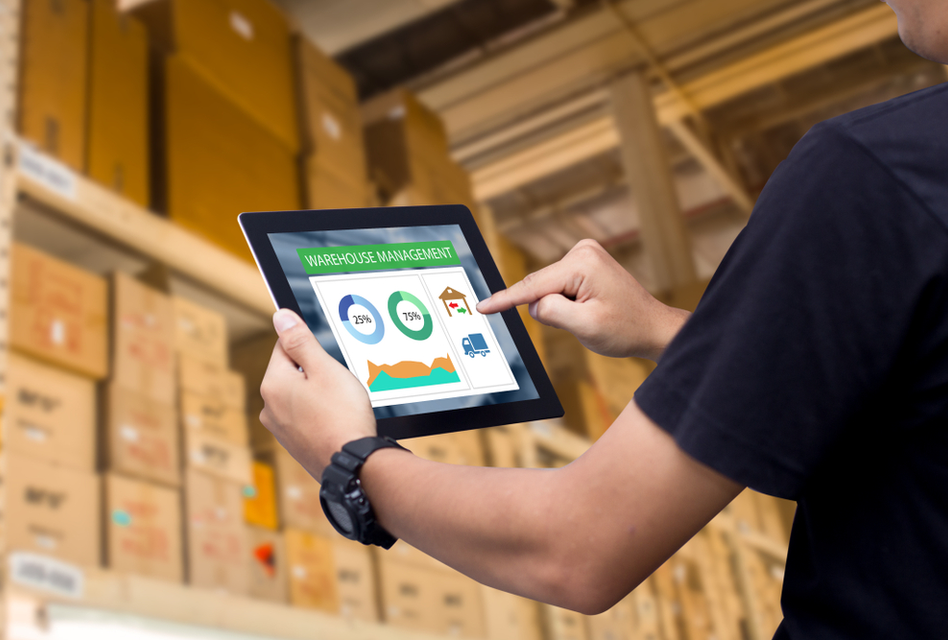If you’re in the supply chain industry, you’re probably thinking to yourself, “I already have an expensive ERP or inventory management system, what could blockchain possibly do that those systems don’t already?” The answer might surprise you.
The supply chain ecosystem is one of the best examples of how blockchain can transform the way we do business, and improve the quantity, quality, and access to information at every step of the way. Technology in supply chain management may seem advanced, with RFID scanners, tracking labels and barcodes everywhere. But let’s take a look at where that data actually ends up.
The Current State of Supply Chain Technology

Before we look at some blockchain supply chain use cases, let’s take a quick look at how technology currently works in the industry.
There are many advanced systems in place at companies across the world, but they all tend to exist in a silo.
There are gaps between data that keep true transparency in the provenance of a particular product a mystery. A manufacturer might digitally record production of a certain product, but that data doesn’t accompany it to the warehouse. A shipping label might be generated from an online order, but that tracking information doesn’t contain anything about what’s in the box.
Each of these breaks in the chain of progression for a particular product or raw material presents an opportunity for a mistake, fraud or even theft. But furthermore, they just make it harder to track the history of a product, or analyze the volumes of data that these legacy systems generate.
Firms spend millions on electronic data interchange (EDI) and XML programming to try to marry the data from these different resources, but that is time-consuming and has its own limitations. Blockchain supply chain management not only has the power to solve all these problems but opens up new avenues for efficiency, visibility and collaboration.
A Quick Refresher on Blockchain

Simply put, blockchain is a peer-to-peer software system where every step of a process is recorded and stored in a piece of data called a ‘block,’ and each subsequent stop in a process creates a new block. That means that all the steps are recorded in that very same ‘chain of blocks.’
The real key to the system, however, is that a copy of this blockchain or ‘a distributed ledger’ is stored on every single user’s computer, and they all must agree to that. This means that there’s constantly data validation going on, and it makes fraud, theft or data corruption virtually impossible.
Now let’s take a look at why it’s the latest technology in supply chain management.
Tracking a Widget End to End

Imagine a product sitting on a shelf in a warehouse. It has a barcode, but that’s only really telling you what shelf it’s on. Now, imagine that same barcode unlocks the entire history of that product and all its raw materials.
This is what blockchain technology in supply chain can achieve. Because each stage of production, assembly, transportation and storage is recorded on the blockchain, and verified by every user in the network, you will always know the origin of a product and all relevant information about its production.
Blockchain supply chain solutions provide a level of transparency that is unheard of in the industry. Knowing exactly the path that a product or material has taken can reveal important details and help businesses with real insight through data analysis.
Importantly, key facets of the data in the chain — while verified on every user’s computer — will only be visible to certain access levels. For instance, if negotiated pricing is stored on the blockchain, you wouldn’t want everyone on the system to see it. Such user rights can easily be built into the system.
Synergy with Your Current Systems

You may be thinking to yourself “but I already have an expensive inventory management system that we just implemented.” Luckily, blockchain supply chain solutions can piggyback on your current data infrastructure.
In fact, blockchain in the supply chain doesn’t have to fully replace any systems, but rather connect them in a way that makes the data more valuable to you and at the same time more secure, trusted and accurate.
Currently, when data gets out of sync, often a third party must be called in to perform an audit or inventory count. If you think of blockchain in the supply chain as an audit at every single transaction point, you can see how powerful these systems can be.
Industry Examples

There are already some great pilot programs and systems testing use cases and implementing blockchain in supply chain management. Large companies are already using the new technology in supply chain, and software development firms are hard at work building solutions.
Let’s take a look at a few industries and how they can benefit from blockchain implementation.
Food Industry
The food production and distribution industry has been one of the first to implement the new technology. Perhaps nowhere is the source of a product and the time it has been on a shelf more important than in this industry. Recent E. coli outbreaks have prompted Walmart to roll out a pilot system to track supply sources using blockchain.
When combined with IoT (Internet of Things) connected devices, the power of the information is augmented. Imagine if the conditions in the shipping container or truck are recorded on the blockchain as well — exposing dangerous temperature spikes and improper handling.
IBM has created a program called the IBM Food Trust, which aims to marry food supply chain and blockchain in a way that can increase transparency and food safety for everyone.
Automotive Industry
One of the more complex final products with a huge number of components is your automobile. When you consider just how many parts there are, and imagine the supply chain for each and every component, you get a sense of how blockchain can help in this industry.
Not only do the automakers switch suppliers for certain components, those suppliers switch suppliers for their components and so on. That information often doesn’t reach the manufacturer, and at times creates the need for forensic analysis after the fact if a problem arises.
Now imagine — in a blockchain-based supply system, the supplier information for every component will arrive with it on the blockchain. The manufacturer will know the origin of every single part, no matter who the supplier is, or which suppliers they use.
The Future of Supply Chain

In reality, it’s not a matter of whether the supply chain industry will adopt blockchain technology, it’s a matter of when. And that time is now. Companies all over the world are creating systems to meld blockchain technology and supply chain management.
Many development firms already have working models and can quickly adapt them to your business. Take a moment to review OpenLedger’s supply chain services to see how we can help you get real control and visibility of your data.
Blockchain will truly transform the supply chain industry, and clearly for the better. The efficiency, clarity, trust and accuracy that these new systems generate will benefit us all.





Blockchain Insights
Join our mailing list to receive OpenLedger Insights publications weekly.
Thanks! Please check your inbox to verify your email address.
By clicking “Subscribe”, you’re accepting to receive newsletter emails from OpenLedger Insights every week. You can easily update your email or unsubscribe from our mailing list at any time. You can find more details in our Privacy Policy.